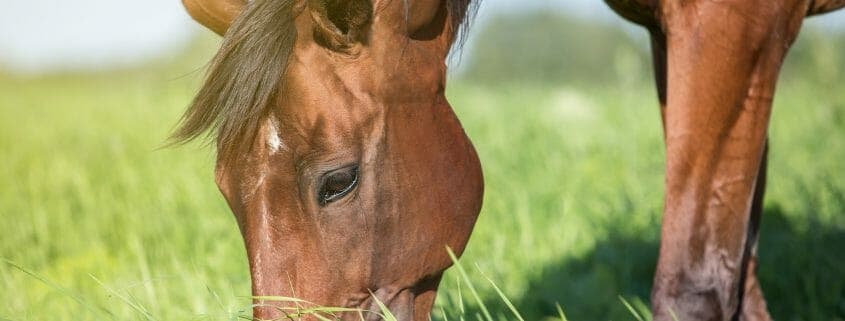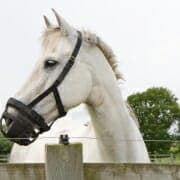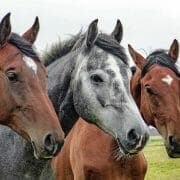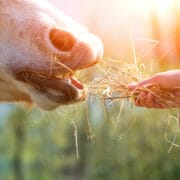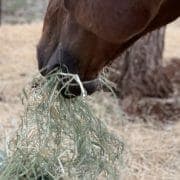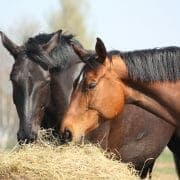Allow grazing in the very early morning for horses prone to laminitis
When to allow grazing for laminitic horses
The key to managing laminitis is by controlling non-structural carbohydrates (NSC) in their diet. But what are they and how does this relate to grazing for laminitic horses? Non-structural carbohydrates are the carbohydrates the plant produces during the process of photosynthesis. During photosynthesis, a plant takes sunlight for energy and uses water and carbon dioxide to create carbohydrates like starch, sugars and fructan.
NSC production starts when the sun comes up and finishes for the day when the sun goes down again. So during sunlight hours, a plant will produce NSC. Then overnight, the plant burns some of this accumulated NSC to survive and grow. They essentially make their own food during the day, and then ‘eat’ some of this food overnight to stay alive and grow.
Which means, NSC content will be lowest in the very early morning, just before the sun comes up. And they will be highest late in the afternoon, just as the sun goes down and into the early evening.
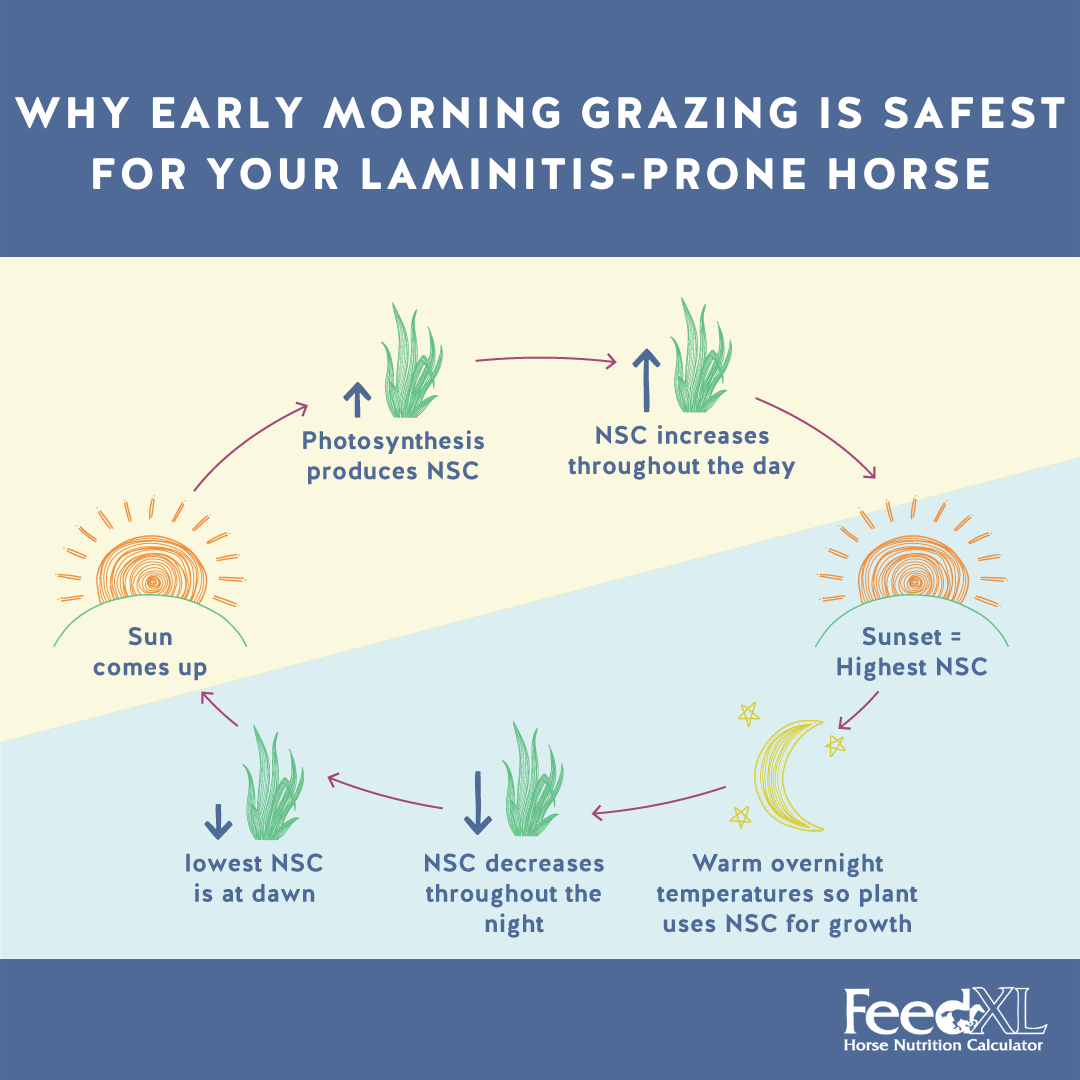
If you have a horse that is prone to laminitis, you should allow grazing only in the VERY early hours of the morning. And if the pasture may become unsafe, you should have them off pasture within 2 hours of sunrise.
BE WARNED however, that even in the very early morning, some pastures will still be too high in NSC to be safe. Spring is a particularly risky time for this to occur as the days are long enough for high NSC accumulation, but the nights are cold enough to slow plant metabolism and growth down so much that they don’t burn up much NSC overnight.
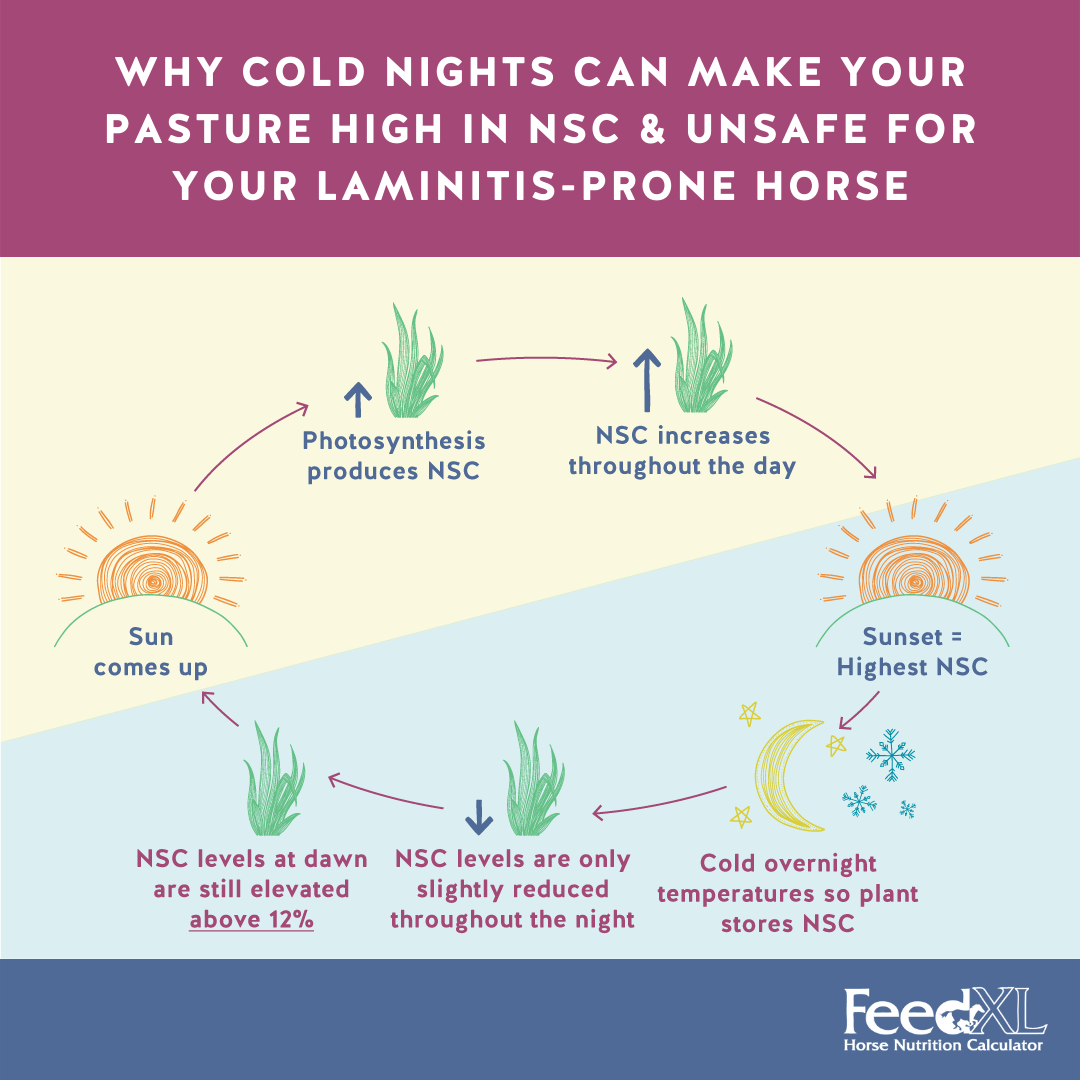
So early morning grazing is sometimes, but not always safe!
For more information on this, as well as a crisis diet for laminitics, click here to download our FREE E-Book ‘Your Guide to Feeding the Laminitic’.
Do you have a question or comment? Do you need help with feeding?
We would love to welcome you to our FeedXL Horse Nutrition Facebook Group. Ask questions and have them answered by PhD and Masters qualified equine nutritionists and spend time with like-minded horse owners. It’s free!
Click here to join the FeedXL Horse Nutrition Facebook Group

